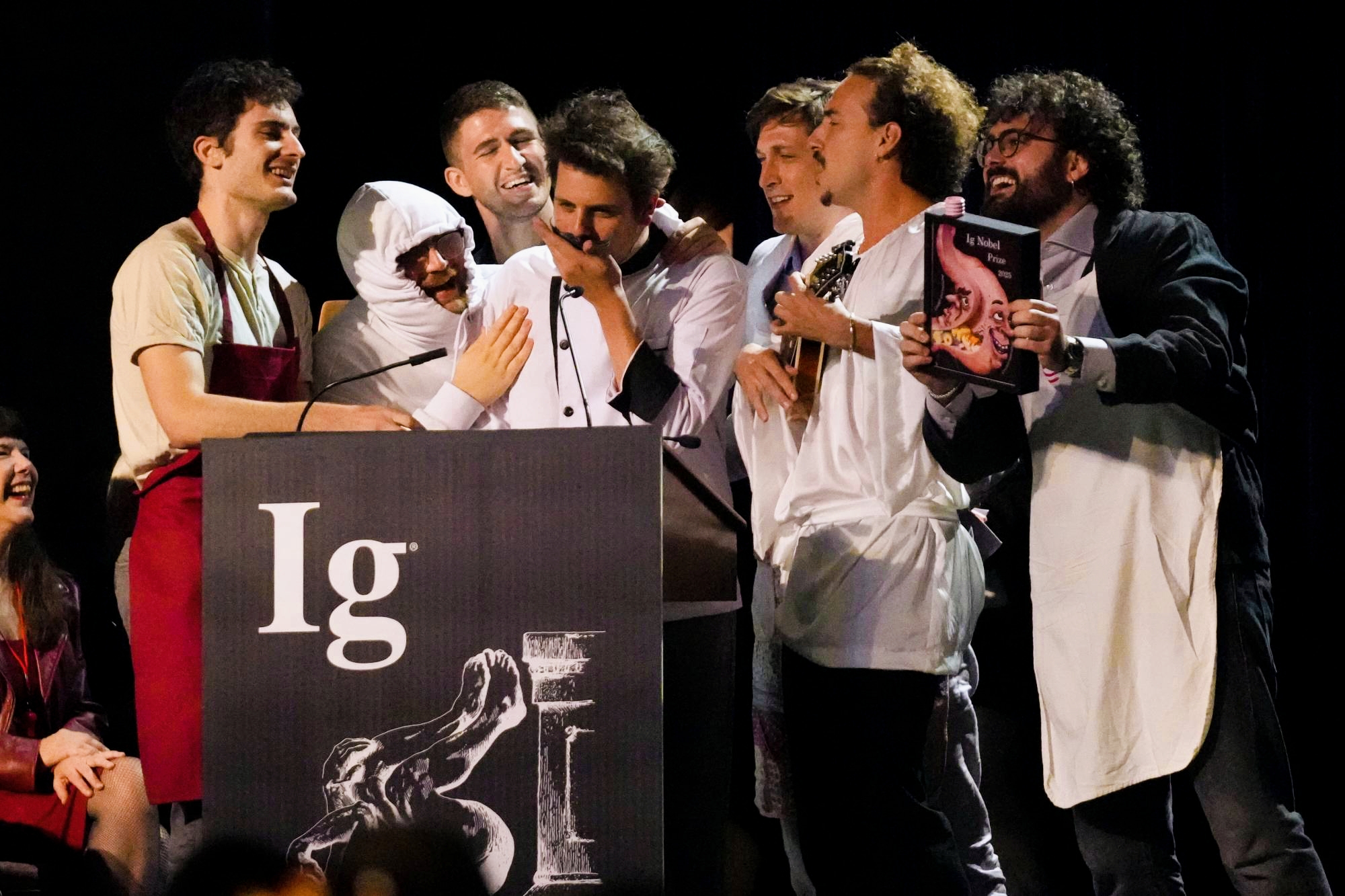The Strangest Studies Awarded the "Ig Nobel" Prizes for Foolishness at the Boston Ceremony 2025
September 19, 2025350 ViewsRead Time: 2 minutes

Font Size:
16
At a ceremony held yesterday, Thursday, in Boston, USA, the winners of the "Ig Nobel Prizes for Foolishness" in its thirty-fifth edition were announced, celebrating unconventional and bizarre scientific research that aims to "make people laugh and then think," according to the event organizers.
The annual event was attended by about one thousand spectators, including actual Nobel Prize winners, and this year's awards focused on the topic of digestion, with participating studies noted for their strangeness and humorous ideas.
* Among the notable winners:
_ An international team from Nigeria, Togo, Italy, and France won the nutrition prize for their study on whether certain types of lizards prefer to eat specific types of pizza.
_ American researchers received an honorary award in the field of pediatrics for a study that investigated the effect of a mother consuming garlic on her infant's feelings.
_ The late American scientist William Penn won the literature prize for his meticulous documentation of the growth rate of one of his nails over 35 years.
_ The German researchers Fritz Reiner and Jessica Wertmann won the peace prize after demonstrating that alcohol consumption can sometimes improve foreign language learning skills, while emphasizing that they do not encourage alcohol consumption and aim to create a mix of laughter and reflection.
* The list also included:
_ Scientists from the Max Planck Institute in Germany who revealed the reason for pasta sauce clumping.
_ Indian engineers studied the effect of smelly shoes on the use of shoe racks.
_ Biologists from Japan tested the effect of painting cows with zebra stripes to repel flies.
_ Research teams studied the effects of compliments on narcissistic individuals, the impact of Teflon consumption on feelings of fullness, as well as the effect of alcohol on bats' flying ability and echolocation.
The "Ig Nobel" prizes highlight the fun side of scientific research and shed light on studies that seem strange but contain ideas that stimulate scientific thinking in unconventional ways.